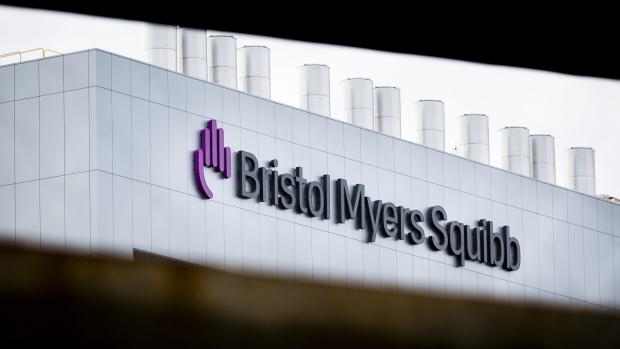Apr 25, 2024
Bristol Myers Beats on Revenue as Revlimid Sales Decline Slows
, Bloomberg News

(Bloomberg) -- Bristol Myers Squibb Co. shares fell the most in four years as sales of key drugs missed Wall Street’s expectations and the company announced job cuts as part of a $1.5 billion cost-reduction program.
The company will eliminate 2,200 jobs this year and has ended about 12 drug development programs, executives said Thursday on a call after releasing first-quarter results. The shares fell as much as 7.1% at the US market open, their biggest intraday loss since 2020.
“We have taken action to increase productivity and efficiency,” Chief Financial Officer David Elkins said on the call, adding that going forward management will “disproportionately invest in higher-return opportunities.”
Bristol is facing a hit to sales of two of its biggest medicines — the blood thinner Eliquis and the cancer immunotherapy Opdivo — losing exclusivity in the coming years. Chief Executive Officer Christopher Boerner, who took the reins in November, has promised that Bristol will return to sustained growth starting around 2028.
First-quarter sales of cancer drug Opdivo missed analysts’ expectations, while revenue from heart medication Camzyos and psoriasis treatment Sotyktu, newer products seen as future top sellers, were also lower than Wall Street estimates.
Camzyos sales were depressed because purchasers stocked up at the end of last year, and because of seasonal insurance dynamics, Chief Commercialization Officer Adam Lenkowsky said in an interview. Sotyktu sales, meanwhile, were hit as the company had to pay higher rebates to keep the drug available to insured patients, Lenkowsky said.
Bristol expects to announce soon that Sotyktu will be covered by another large pharmacy benefit manager that represents about 30 million people, Lenkowsky said.
Bristol’s total sales for the quarter were $11.9 billion, beating analysts’ average estimate of $11.4 billion. The company posted a loss per share, excluding some items, of $4.40, which was better than analysts’ expected $4.44 loss.
In addition to launching new medicines, Bristol has acquired several companies to buttress drug revenue. Last year, the company paid $14 billion for Karuna Therapeutics, inventor of a treatment for schizophrenia that could win US approval this year. Bristol also acquired RayzeBio Inc., maker of investigational radiation therapies, for $4.1 billion, and Mirati Therapeutics Inc., a cancer drugmaker, for $4.8 billion.
Bristol lowered its profit guidance for the year to account for the purchases, which Wall Street had anticipated. Bristol now forecasts adjusted earnings per share of 40 cents to 70 cents, in line with analysts’ average estimate of 67 cents.
(Updates throughout.)
©2024 Bloomberg L.P.


